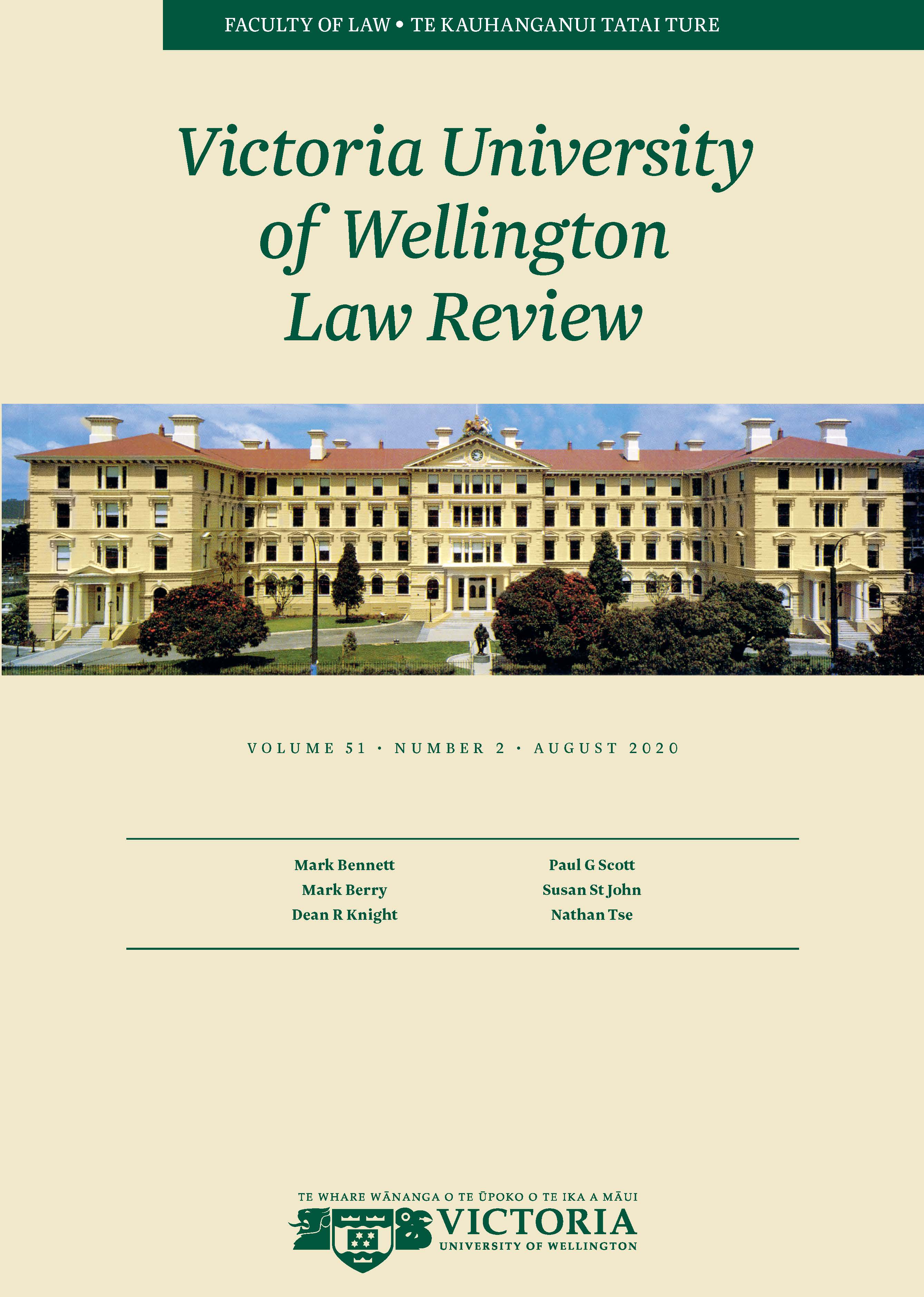The Illusory Trust Doctrine: Formal or Substantive?
DOI:
https://doi.org/10.26686/vuwlr.v51i2.6568Abstract
"A document is put before us. Does it or does it not create a trust?" This article considers the illusory trust doctrine (ITD) and claims that although the ITD has been criticised as doctrinally unfounded and therefore based in substantive, non-legal reasons rather than pre-existing law, there are formal reasons of trusts law to support it. It begins by considering Atiyah and Summers' concepts of form and substance, and then examines how they apply in the context of equity (in general), and then trusts law (in particular). It then briefly considers a number of recent decisions on the ITD: the four cases constituting the Clayton v Clayton litigation in New Zealand, Pugachev and the Cook Islands Court of Appeal and Privy Council decisions in Webb v Webb. Finally, it analyses these ITD decisions using the form and substance distinction, concluding that it is arguable that the ITD is grounded in principles of established trust law, as opposed to purely substantive reasoning.
Downloads
Downloads
Published
How to Cite
Issue
Section
License
Authors retain copyright in their work published in the Victoria University of Wellington Law Review.


